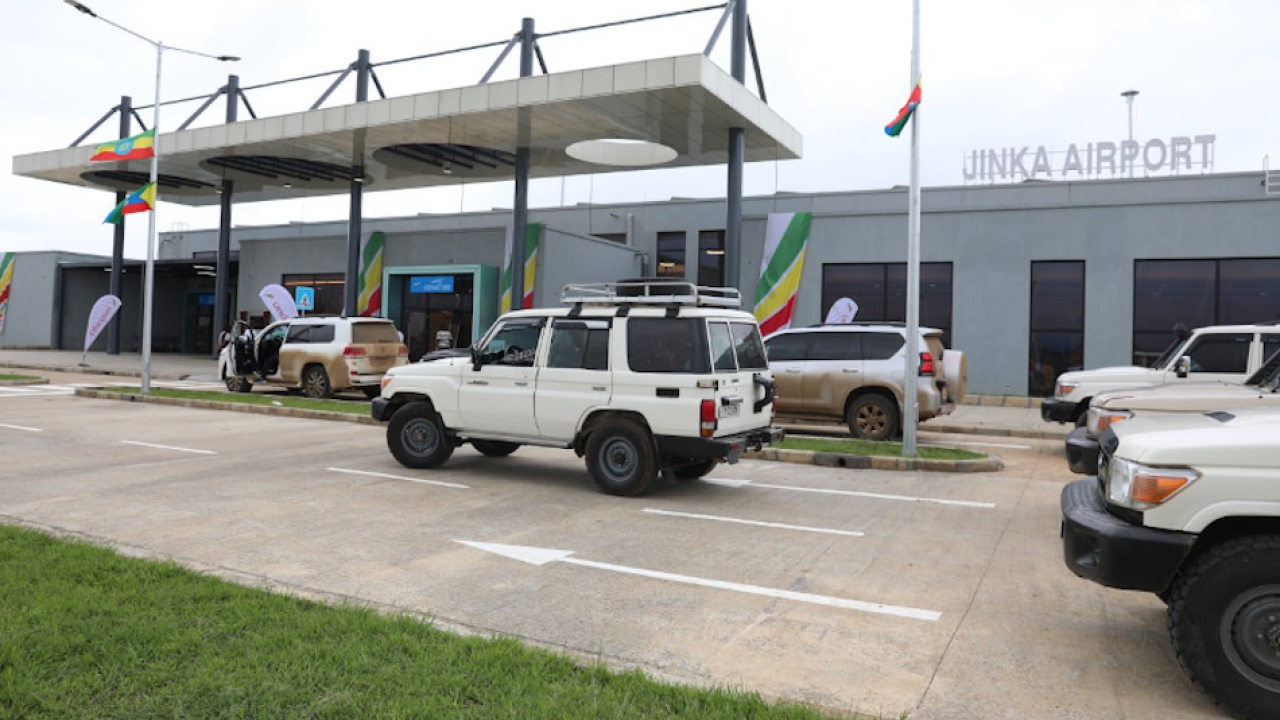Improved baggage tracking key to ensuring passenger satisfaction

Job creation, tourism and manufacturing have all increased at a steady pace, and the influx of travellers to this region has prompted many of the major airports to increase their capacity considerably. Addis Ababa was last year named as the leading gateway to Africa, overtaking Dubai.
With passenger flow and satisfaction both being major priorities in managing the surge in passenger numbers, SITA’s research has shown that baggage collection has a profound effect on the overall passenger experience and is the stage in the journey that is most likely to leave passengers feeling negative about their trip. In addition, the demand for improved passenger-facing solutions such as mobile bag tracking and lost luggage reporting has grown steadily.
As passenger numbers increase, baggage handling can become more demanding on air transport infrastructure, which is why adaptable solutions to managing luggage currently show a lot of promise. In particular, the ability to track bags has become a critical part of enhancing airport operations and achieving a seamless passenger journey.
An evolving industry standard
In recent years, an increasing number of airlines have introduced baggage tracking at key points in the journey – check-in, loading onto the aircraft, transfers and arrival – in response to IATA’s Resolution 753 that bags should be tracked from start to finish. In addition, airlines are now communicating more with missing baggage information via mobile devices.
In the context of the IATA Resolution 753, 68% of airlines have indicated that they plan to implement real-time bag tracking information for passengers by 2021. Additionally, 60% of airlines plan to implement information services via mobile apps to passengers for missing baggage and baggage location status updates. Real-time bag tracking information via mobile apps is on the self-service investment agenda for a majority of airlines over the next three years where they plan to offer bag location status updates and missing bag communications to passengers.
This investment in tracking is already having a positive impact. Our analysis of baggage records reveals that where bags are tracking at check-in and loading onto the aircraft, the rate of improvement ranged between 38% and 66%, depending on the level of tracking introduced. Total mishandled bags each year have plummeted 47% from 46.9 million in 2007 to 24.8 million in 2018. As a result, the annual bill footed by the industry has shrunk 43% to US$2.4 billion, ($4.22 billion in 2007).
The rise of smart tech solutions
Passengers are already welcoming technology that will ease and expedite their journey through the airport. As our own research shows, passengers today are more keen to receive real-time baggage collection notifications on their mobile devices. Our research also indicates that the level of satisfaction amongst passengers receiving mobile notifications is higher than among those relying on airport screens or public announcements.
Looking ahead, Radio Frequency Identification (RFID) is looming on the horizon. RFID will help the air transport community move to a per bag plan for successful delivery. IATA has committed to developing a standard for using RFID tagging this year to help increase the accuracy of baggage handling and ease processes as passenger numbers continue to rise. Though roll out is likely to be slow, as new technologies will need to be deployed worldwide, the end result will make it easier for baggage to be tracked and allow passengers to receive updates on their bags via an app.
While the immediate focus is on implementing Resolution 753, the bag tracking data generated and collected under the Resolution will give the air transport industry a rich stream of data. This data can then be enhanced with Artificial Intelligence (AI) tools to create even greater efficiencies in baggage operations and, ultimately, to improve the seamless passenger journey. AI promises to make mishandled bags an increasingly rare event for passengers globally.
Community collaboration is the key to success
Delayed bags accounted for over three quarters of all mishandled bags in 2018. Tackling potential operational disruptions in baggage handling is a major technology focus for airlines. Predictive analytics capabilities, which will help identify and address disruptions before they occur is the second main use case for artificial intelligence implementation.
While airlines bear the ultimate responsibility for delivering the correct bag to the correct passenger, the airports and ground handlers they work with also need to have the appropriate IT systems and infrastructures in place to support compliance.
The scanning and subsequent documented receipt of arriving baggage will help airports drive down the cost of making baggage reports and running lost bag procedures. Successful technology transformation of baggage management demands community-wide collaboration to positively impact the passenger experience. Finding new ways of working and sharing data to enhance the experience for air travellers and to improve operations is critical. Baggage tracking is one of the most pressing challenges facing the air transport community today.
Enabling the air transport community to scale up tracking capabilities without needing massive capital investment from the community, has the potential to grow every airport’s passenger capacity by orders of magnitude. While smart technology and passenger-facing solutions are part of the solution to this challenge, the true cornerstone in this ecosystem is a comprehensive IT backbone that can seamlessly relay information between all of the key role players, regardless of their geographical location.
Stay up to date
Subscribe to the free Times Aerospace newsletter and receive the latest content every week. We'll never share your email address.

